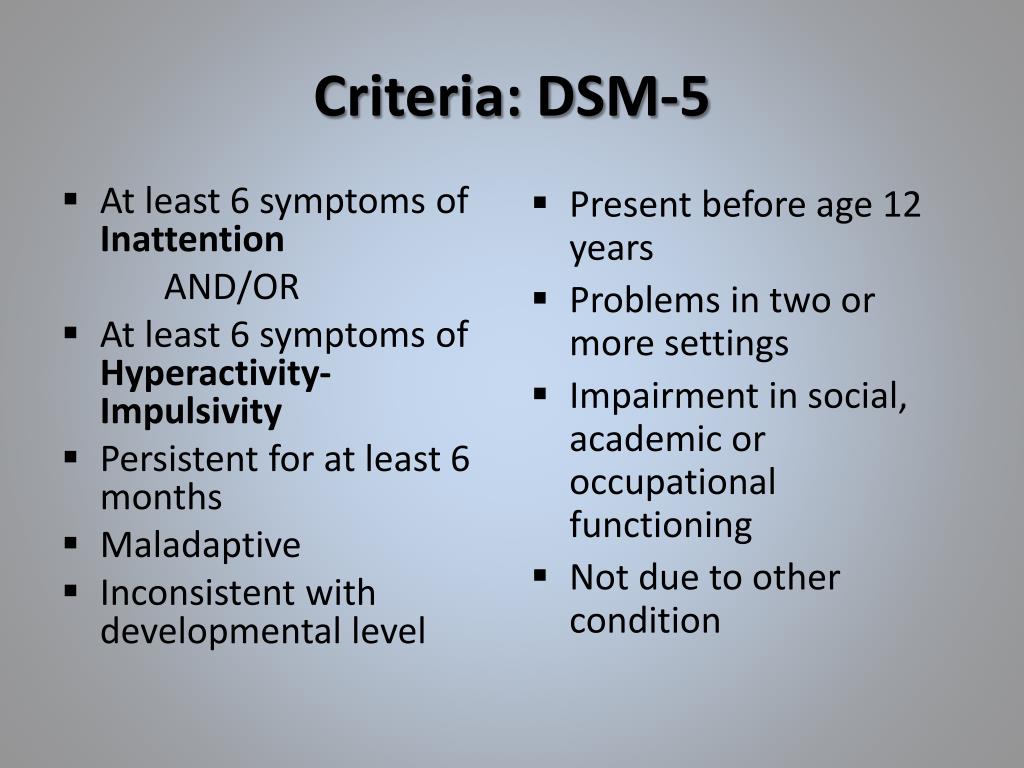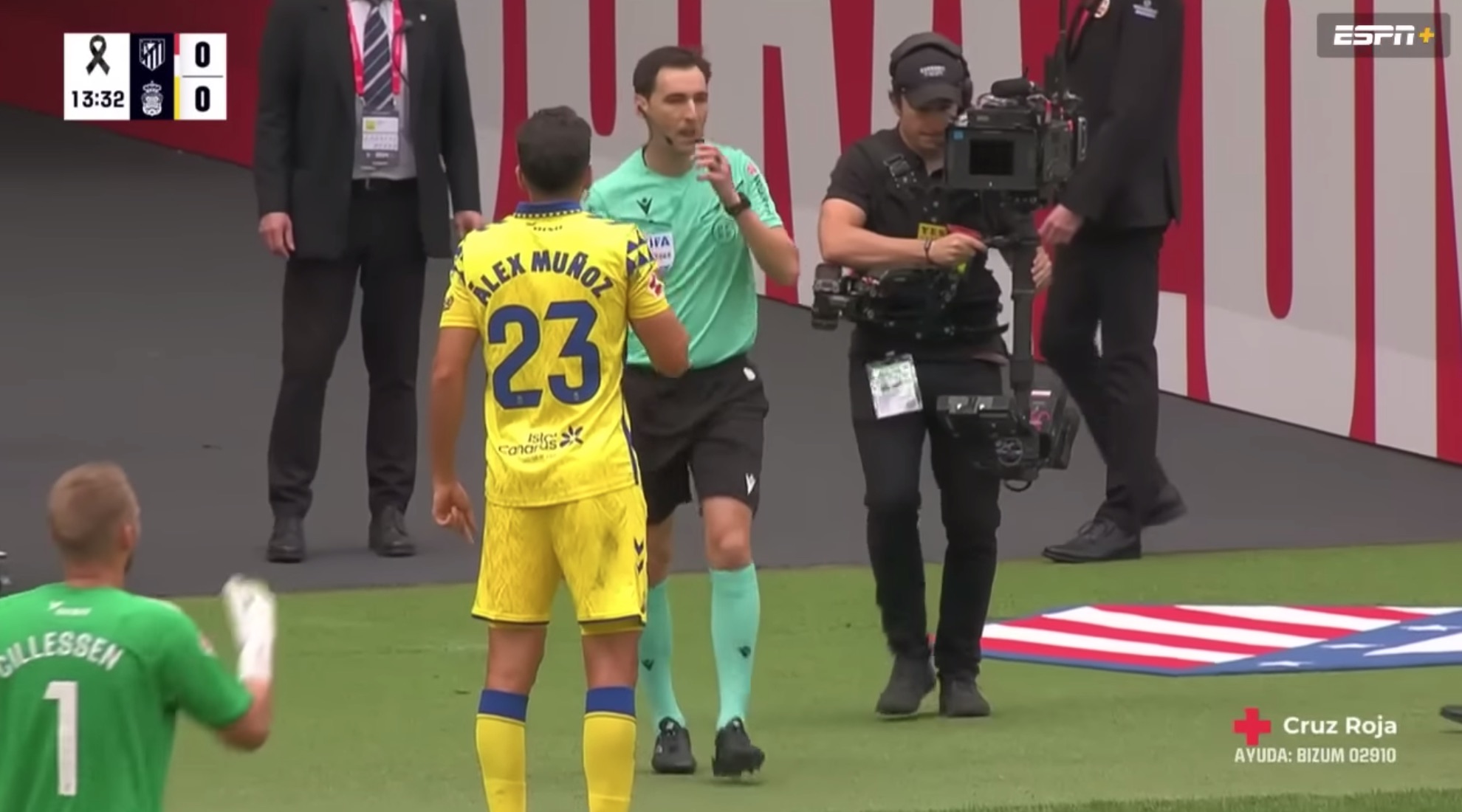Understanding Adult ADHD: Diagnosis And Treatment Options

Table of Contents
Recognizing the Symptoms of Adult ADHD
While often diagnosed in childhood, Adult ADHD presents with unique challenges and symptoms that can be easily missed. Understanding these symptoms is the first step towards seeking help.
Common Symptoms in Adults:
Adult ADHD symptoms differ from those seen in children, often manifesting as subtle difficulties rather than overt hyperactivity. Common symptoms include:
- Difficulty focusing and maintaining attention on tasks: Struggling to concentrate during meetings, losing train of thought while reading, or frequently switching tasks without completion.
- Disorganization and problems with time management: Chronic lateness, missed deadlines, cluttered workspaces, and difficulty prioritizing tasks. This can significantly impact productivity and professional success.
- Impulsivity and difficulty controlling emotions: Making rash decisions, interrupting conversations frequently, or experiencing sudden emotional outbursts.
- Restlessness and difficulty sitting still: Feeling fidgety, tapping feet, or constantly needing to move around. This can be particularly challenging in work or social settings.
- Procrastination and difficulty completing tasks: Putting off tasks until the last minute, leading to increased stress and anxiety.
- Challenges with working memory: Difficulty remembering appointments, instructions, or names, leading to frustration and potential errors.
ADHD vs. Other Conditions:
It's crucial to differentiate Adult ADHD symptoms from those of other conditions, as many share similar characteristics. Anxiety, depression, and learning disabilities often coexist with or mimic ADHD symptoms. A proper differential diagnosis is vital to ensure the correct treatment plan.
- Anxiety: While both conditions can cause restlessness and difficulty concentrating, anxiety is often characterized by intense worry and fear.
- Depression: Symptoms like fatigue, low motivation, and difficulty concentrating are shared by both depression and ADHD, requiring careful assessment to distinguish between them.
- Learning Disabilities: Learning disabilities might manifest as difficulty with reading or math, while ADHD affects attention and impulsivity across various domains.
A comprehensive evaluation by a qualified professional is necessary to rule out other conditions and reach an accurate diagnosis.
The Diagnostic Process for Adult ADHD
Getting a diagnosis for Adult ADHD involves a multifaceted process requiring professional guidance. Early intervention can significantly improve quality of life.
Seeking Professional Help:
The first step is to seek help from a qualified healthcare professional experienced in diagnosing and treating Adult ADHD. This often includes:
- Psychiatrists: Medical doctors specializing in mental health who can prescribe medication.
- Psychologists: Professionals who conduct comprehensive evaluations and may offer therapy.
- Neuropsychologists: Specialists who conduct neuropsychological testing to assess cognitive functioning.
Scheduling an appointment involves gathering relevant information about your symptoms, medical history, and family history of ADHD. Be prepared to describe your challenges in detail.
Diagnostic Tools and Methods:
Several methods are used to diagnose Adult ADHD, including:
- Adult ADHD Self-Report Scale (ASRS): A questionnaire that helps assess the presence of ADHD symptoms. This is often the first step in the evaluation process.
- Clinical Interviews: Structured interviews that delve into the specifics of your symptoms, their impact on your life, and your personal history.
- Neuropsychological Testing: These tests measure various cognitive functions, such as attention, memory, and executive function, to help confirm a diagnosis and rule out other conditions.
Effective Treatment Options for Adult ADHD
Once diagnosed, various treatment options are available to effectively manage Adult ADHD symptoms. A personalized approach often combines medication and therapy.
Medication Management:
Medication plays a significant role for many individuals with Adult ADHD. The most common medications include:
- Stimulants: Such as methylphenidate (Ritalin, Concerta) and amphetamine (Adderall, Vyvanse), which increase dopamine and norepinephrine levels in the brain, improving focus and attention.
- Non-stimulants: Including atomoxetine (Strattera) and guanfacine (Intuniv), which work differently than stimulants but provide similar benefits.
It's essential to discuss potential side effects and monitor their impact closely with your doctor.
Therapy and Behavioral Interventions:
Therapy complements medication and offers valuable strategies for managing ADHD symptoms.
- Cognitive Behavioral Therapy (CBT): Teaches techniques to manage impulsivity, improve organization, and develop better coping mechanisms for stress.
- Behavioral Therapy: Focuses on identifying and changing negative behavioral patterns.
Lifestyle Changes and Support:
Lifestyle adjustments significantly impact Adult ADHD management:
- Regular Sleep Schedule: Ensuring sufficient sleep improves focus and mood regulation.
- Regular Exercise: Physical activity boosts dopamine levels and reduces stress.
- Healthy Diet: A balanced diet supports brain function and overall well-being.
Living with Adult ADHD: Strategies and Support
Managing Adult ADHD involves adopting strategies and seeking support.
Developing Coping Mechanisms:
- Time Management Techniques: Prioritizing tasks, using planners, and breaking down large projects into smaller, manageable steps.
- Organization Strategies: Utilizing organizational tools, creating routines, and decluttering your workspace.
- Stress Reduction Techniques: Practicing relaxation techniques like mindfulness or yoga, engaging in hobbies, and setting realistic expectations.
Support Groups and Resources:
Connecting with others facing similar challenges offers valuable support and understanding.
- CHADD (Children and Adults with Attention-Deficit/Hyperactivity Disorder): A leading organization providing resources and support for individuals with ADHD and their families.
- ADDitude Magazine: An online resource offering articles, advice, and community support.
Conclusion
Understanding Adult ADHD is crucial for effective management. This article has explored key symptoms, diagnostic processes, and treatment options. Remember, seeking professional help is essential for accurate diagnosis and personalized treatment. Don't let Adult ADHD control your life; take proactive steps towards managing your symptoms and improving your quality of life. Learn more about managing your Adult ADHD today by researching available resources and consulting with a healthcare professional.

Featured Posts
-
 Garantia De Gol De Alberto Ardila Olivares Analisis De Su Eficacia
Apr 29, 2025
Garantia De Gol De Alberto Ardila Olivares Analisis De Su Eficacia
Apr 29, 2025 -
 You Tube A New Home For Classic Television Shows And Older Viewers
Apr 29, 2025
You Tube A New Home For Classic Television Shows And Older Viewers
Apr 29, 2025 -
 Fhi Rapport Begrenset Effekt Av Adhd Medisin Pa Skole
Apr 29, 2025
Fhi Rapport Begrenset Effekt Av Adhd Medisin Pa Skole
Apr 29, 2025 -
 Taxe 2025 Anunturi Importante De La Conferinta Pw C Romania
Apr 29, 2025
Taxe 2025 Anunturi Importante De La Conferinta Pw C Romania
Apr 29, 2025 -
 Cardinals Conviction And Eligibility For Papal Conclave Vote
Apr 29, 2025
Cardinals Conviction And Eligibility For Papal Conclave Vote
Apr 29, 2025
